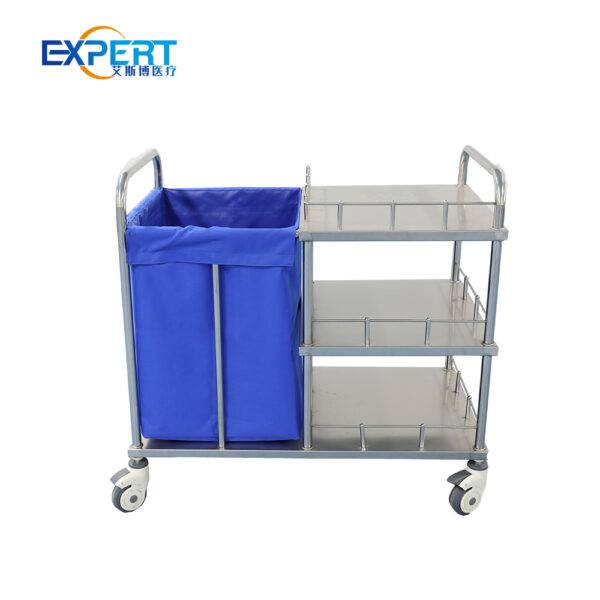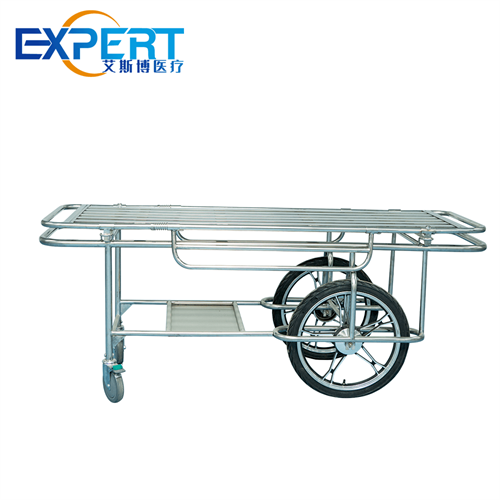عنوان
304 شارع الكاردينال الشمالي
مركز دورتشستر ، ماساتشوستس 02124
ساعات العمل
من الاثنين إلى الجمعة: 7 صباحًا - 7 مساءً
عطلة نهاية الأسبوع: 10 صباحًا - 5 مساءً
مرحباً بكم في مدونتي!
قبل أن نتعمق في المحتوى، أود منك الانضمام إليّ على منصات التواصل الاجتماعي الخاصة بي حيث أشارك المزيد من الأفكار وأتفاعل مع المجتمع وأنشر التحديثات. إليك كيفية التواصل معي:
فيسبوك:https://www.facebook.com/profile.php?id=100071234835011
لينكدإن:https://www.linkedin.com/company/74943205/admin/dashboard/
يوتيوب:www.youtube.com/@shandongexpertmedicalequip4695
تيك توك:www.tiktok.com/@expertmedical
الآن، لنبدأ رحلتنا معًا. أتمنى أن تجد المحتوى هنا مفيدًا وجذابًا وقيمًا.

In the fast-paced environment of modern hospitals, efficiency and accuracy are paramount. One of the unsung heroes of hospital operations is the medical cart. These mobile units play a crucial role in facilitating the delivery of patient care, enhancing workflow, and ensuring the availability of essential medical supplies and equipment. This blog explores the multifaceted role of medical carts in modern healthcare settings.
Medical carts have come a long way since their inception. Initially serving as mere transportation vessels for medical supplies, they have evolved into sophisticated, technology-driven tools. From simple medication carts to specialized units for emergency response and telemedicine, the diversity and complexity of medical carts continue to expand.











The adoption of medical cart offers several benefits to healthcare providers and patients alike. By decentralizing supplies and equipment, medical cart reduce the time spent searching for items, allowing clinicians to focus more on patient care. Moreover, they promote organization and standardization across healthcare facilities, leading to improved efficiency and reduced errors.
To illustrate the impact of medical carts in clinical settings, let’s examine a few case studies:
In a bustling emergency department, every second counts. By deploying specialized emergency carts stocked with essential medications and equipment, hospitals can expedite critical interventions, such as cardiac resuscitation and trauma care, leading to better patient outcomes.
With the rise of telemedicine, medical carts equipped with teleconferencing capabilities have become invaluable tools for remote consultations and virtual patient examinations. These carts enable healthcare providers to extend their reach beyond the confines of traditional healthcare settings, delivering quality care to patients in remote areas or during emergencies.
As technology continues to advance, so too will the capabilities of medical carts. Future iterations may incorporate artificial intelligence (AI) algorithms for predictive maintenance, autonomous navigation for enhanced mobility within hospital environments, and augmented reality (AR) interfaces to assist clinicians during procedures.

| ميزة | وصف |
|---|---|
| Secure Storage | Multiple compartments with locking mechanisms ensure the safe storage of medications, supplies, and equipment, enhancing patient safety. |
| Integrated Power Source | Built-in power outlets or rechargeable batteries power electronic devices, reducing reliance on external power sources and minimizing hazards. |
| تصميم مريح | Lightweight construction, smooth-rolling casters, and adjustable work surfaces promote user comfort and ease of mobility in clinical settings. |
| EHR Compatibility | Seamless integration with electronic health record systems enables real-time documentation and information exchange at the point of care. |
| RFID Technology | RFID tags and readers facilitate inventory management, tracking, and replenishment of medical supplies, optimizing workflow efficiency. |
ختاماً، medical carts play a vital role in modern hospitals by enhancing efficiency, improving workflow, and ultimately, contributing to better patient care. As healthcare technology continues to evolve, medical carts will remain indispensable tools for healthcare providers striving to deliver optimal outcomes in a rapidly changing landscape.
س: هل medical carts customizable to suit specific departmental needs?
A: Yes, many manufacturers offer customization options, allowing hospitals to tailor medical carts to the unique requirements of different departments, such as emergency medicine, surgery, or pediatrics.
س: كيف؟ medical carts ensure patient privacy and data security?
A: Medical carts equipped with electronic locking mechanisms and biometric authentication help safeguard sensitive patient information stored on electronic devices, such as tablets or laptops.
س: هل يمكن medical carts be integrated with existing hospital IT infrastructure?
A: Absolutely. Most modern medical carts are designed to seamlessly integrate with hospital networks and EHR systems, ensuring smooth interoperability and data exchange.
